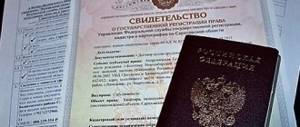What you need to take into account in order to avoid difficulties when contacting a notary office in connection with the registration of legal inheritance rights to property in Moscow and other cities.
Not all citizens have an idea of where to go to formalize their legal rights to property and property rights of loved ones left after their death; they are at a loss as to what documents need to be prepared in such cases.
Only a notary has the right to initiate and conduct cases relating to inheritance, and you should hurry to visit the notary office at the place of residence of the deceased (be it Moscow or another locality), so that the deadline established by the legislator for accepting the inheritance is not missed due to ignorance or other independent circumstances. from you reasons. Dear readers! The articles contain solutions to common problems. Our lawyers will help you find the answer to your personal question free of charge To solve your problem, call: You can also get a free consultation online.
On what basis are inheritance matters distributed?
Before you decide to register an inheritance, it will not hurt to figure out which particular notary office is authorized to directly handle your inheritance case. There is no procedure for distributing notary employees according to notarial actions; they all perform the same work. However, with regard to registration of inheritance rights, there are several nuances:
- territoriality - a notary accepts documents, opens and conducts an inheritance case at the place of residence of the deceased person;
- it is possible to distribute cases alphabetically, the initial letter of the surname of the deceased - the notary carries out activities in the area to which the surname of the testator is assigned;
- in the absence of registration of the place of residence, the case can be opened at the place where the main part of the property of the deceased citizen is located.
Important! The entire inheritance case (from filing the application to the issuance of the certificate) is handled by one notary, to whom the heir initially applied, public or private, it does not matter.
As for Moscow, there is a single database of all inheritance cases, and their centralized records are maintained. To document your legal rights, you can contact any public or private notary, regardless of the place where the person lived on the day of death. If there are several heirs, and the case has already been opened, the notary to whom they turn will send citizens to draw up documents at the notary office where the case has already been opened.
State notary at your place of residence
In the process of registering rights to the inherited estate, the authorized person checks the following data:
- The fact of the death of the testator;
- Relations between the testator and the heir based on kinship or the provisions of the will;
- The existence of the testator's ownership rights to the property entrusted or transferred to the heir by law.
In this regard, the specialist must have contact details of organizations that record and maintain relevant information.
Within a small city that has one name of authorized bodies, it is quite easy to verify information. However, when it comes to big cities or a country, the work of finding and obtaining the necessary information becomes much more complicated.
In this regard, to simplify and speed up the procedure for registering inheritance rights, notary offices were distributed according to territorial basis.
To register the right to transfer the estate to its successor, you must contact the organization:
- At the place of opening of the inheritance - i.e. place of last registration of the deceased citizen.
- At the location of most of the inheritance. In this case we are talking about real estate objects.
Based on the data of the Legislation of the Russian Federation, as well as the Laws of the city of Moscow, the management of inheritance affairs in the city of Moscow is the responsibility of notaries of the city of Moscow.
Depending on the date of death of the testator, various methods are used to determine which of them should conduct the inheritance business:
- death occurred before May 5, 2005;
- his death occurred after May 05, 2005.
Until May 5, 2005, the practice in Moscow was to distribute notarial cases among notaries along the streets. After this date, the system of Centralized accounting of inheritance cases was introduced.
Thanks to this, it became possible to register an inheritance not from a specific one in the city, but from anyone located in Moscow. Information about the streets that were previously assigned to notaries can be found by contacting any of the telephone numbers of the Moscow Notary Chamber.
Let's celebrate! That when there are two or more heirs, the inheritance case will be conducted by the notary who was approached with an application to accept the inheritance for the first time. Therefore, the second one will need to submit an application to him.
In this case, you can contact a notary:
- private;
- state
Regardless of the chosen notary, the procedure for applying is the same; the principle of territoriality applies within the boundaries of the city of Moscow.
How to find the right notary office at your place of residence?
In order to determine which notary offices are located at the place of residence of both the heir and the testator, it is worth visiting the official information portal of the Moscow City Notary Chamber.
While on the site, you can get all the necessary information about the location of notary offices. To do this you need:
- go to the main page of the site;
- select the “Moscow Notaries” tab;
- while on the page you can see a map on which the addresses of notary offices are marked;
- For a more precise search, you can enter an address or specify a metro station, as well as independently enlarge the required section of the map.
Is it possible to register an inheritance not at the place of residence?
Due to the workload of some notarial counters, as well as the immense size of the country, the legislator introduced a state program that allowed a potential heir to contact any body that registers the transfer of rights to property, regardless of its territorial affiliation.
This program is called “Inheritance Without Borders.” Its purpose is to simplify the procedure and process of obtaining an inheritance.
However, this program is an experiment. At the moment, its implementation has been carried out in cities of federal significance - Moscow and St. Petersburg, as well as in their regions and some other large cities. Information about whether the city in which the potential heir lives participates in the program can be found by contacting the notary chamber in person or on its website on the Internet.
The implementation of the program was facilitated by the automation of recording and storage of information by authorized bodies, which allows the notary to obtain the necessary data from any corner of the country. Employees of the Chamber of Notaries will take into account its results and, based on the analysis of the results, the issue of expanding the program will be decided.
The procedure for accepting an inheritance
First of all, it is worth noting that the procedure for accepting an inheritance varies depending on the method:
- Acceptance of inheritance under a will. This method is used only if the person is indicated in the inheritance will. In this case, it does not matter whether he is related to the testator by family or any other relationship.
- Acceptance of inheritance by law. This method is common if a citizen passes away suddenly and does not have time to draw up a will. To accept the inheritance on the basis of law, the heir must be related to the testator and be in one of the inheritance lines. If there are several potential heirs, the right to receive the inheritance mass is determined by the court.
In order to legally formalize the right to the inheritance of a deceased relative, it is necessary:
- If the inheritance is accepted according to a will: Contact the notary office where the will was drawn up. As a general rule, a will is drawn up by a notary at the place of residence of the deceased. In this case, you don’t even have to look for it.
- Provide documents confirming the death of a relative.
- Submit documents confirming relationship.
- Submit documents confirming the right to the inheritance (a copy of the will, a second copy, etc.).
- Contact a notary office authorized to register the transfer of ownership of the property of a deceased citizen.
The territorial distribution of powers of government officials carrying out the registration of inheritance is a measure designed to speed up and simplify the process of obtaining the property benefits of a deceased relative.
Notaries are distributed on a territorial basis and perform actions in the following places:
- opening of inheritance;
- registration of inheritance.
However, due to the inconvenience caused by the length of the territory of the Russian Federation, as well as the workload of some notary offices, the state introduced a program that allows you to register an inheritance at the place of registration of the potential successor of the estate.
At the moment, several cities are participating in it, but the widespread implementation of the “Inheritance Without Borders” program is expected in the near future.
The legislative norms of the Civil Code of the Russian Federation provide for certain requirements when accepting an inheritance. The procedure and sequence of actions aimed at obtaining an inheritance are enshrined in the relevant norm of the Civil Code of the Russian Federation and are contained in Art. 1153.
To inherit according to law, the heir must write a statement to a notary. It is possible to submit such an application:
- personally;
- through a representative (lawyer, lawyer);
- sending it by mail.
To inherit under a will, the heir must:
- contact the notary office where the inheritance was opened;
- drawing up and submitting an appropriate application;
- actual actions in relation to inherited property;
- payment of state duties;
- receiving a completed document from a notary.
The state fee is:
- for heirs of the first and second priority - 0.3% of the market value of the inherited property;
- for others - 0.6%
Let's celebrate! However, parliamentarians provide restrictions on the amount of duty. For close relatives, the border aisle is 100 thousand rubles, and for other categories - 1 million rubles.
For this you will need the following documents:
- death certificate of the testator;
- certificate from the place of residence of the testator;
- a document allowing the identification of the heir;
- original will.
The law provides for the right of each heir to refuse inheritance. This right is enshrined in Art. 1157 Civil Code of the Russian Federation.
To do this, the heir must contact the notary office that opened the inheritance with a statement of refusal to accept the inheritance. The heir may carry out such a refusal either in favor of other persons or without specifying anyone.
It is worth noting that if you refuse to accept an inheritance once, the right to inheritance is lost forever.
How to find the right notary office
The heirs must find out the address of the notary at the place of residence of the deceased and come to the notary's office to submit the appropriate application for acceptance (refusal) of the inheritance. The location address of the required notary can be found in two ways:
- apply for the information of interest to any practicing notary in your city, who will be able to find the necessary notary office by the address of residence of the deceased or by alphabet (the initial letter of the surname);
- address your question to the notary body (Chamber of Notaries), which oversees the activities of all notaries within the required territory.
In some large Russian cities (for example, in Moscow and the region), the “Inheritance Without Borders” program operates; residents of this region have the opportunity to use the services of not only a notary office at the place of residence of a deceased relative, but also any notary in Moscow. This is very convenient for heirs, it saves them from wasting time searching for a specialist based on territorial criteria (there is no connection to a specific address) and significantly simplifies the process associated with entering into an inheritance. This program is not yet valid throughout the country, only in certain regions.
Timely contacting a notary
The most common mistake of heirs is failure to comply with the deadlines for accepting an inheritance. For some reason, most citizens naively believe that since the law provides for a period of 6 months for registering an inheritance, then you need to wait until six months have passed, and only then contact the notary office at your place of residence. An erroneous opinion often leads to irreparable consequences: notaries refuse to accept documents because the deadline has been missed and people have to solve the problem in court. To avoid such unpleasant moments, you need to remember:
- six months are given by law so that all heirs have time to claim their rights to the inheritance or refuse it;
- exclusively in the case when the heirs accepted the inheritance by living together (registering) at the same address with the deceased, that is, in fact, they do not have to rush to visit a public or private notary at their place of residence.
Click on the image to watch the video: “Choosing a notary to register an inheritance”
The following actions regarding the property of the testator can also serve as confirmation of the actual acceptance of the inheritance:
- assuming maintenance costs;
- implementation of actions aimed at safety;
- entry into management and ownership;
- payment of existing debts of the testator.
Having found out the name of the notary and the address of his place of business using one of the above methods, go to the office within the prescribed period, taking with you the following documents:
- death certificate;
- a certificate (for the private sector, an extract from the house register) where the deceased was registered on the day of death;
- documents confirming family relationships;
- if there is a will - the original document with a notary’s mark that the will has not been changed or revoked;
- documents confirming the testator's right of ownership of the inherited property;
- heir's passport.
Click on the image to watch the video: “How to choose a notary?”
This list is not exhaustive; any good notary at the reception will give you a complete package of documents to present to the office.
If for some reason you cannot personally appear before a notary at your place of residence, you have the right to authorize your representative to find out the address of the state notary where the inheritance will be formalized and provide the specialist with the necessary documents. An authorized person confirms his right to act on your behalf with a power of attorney, which must be notarized.
Opening an inheritance
So, the documents have been collected, the fees have been paid, and the notary can begin work. It is the first steps in distributing the inheritance that will be considered the opening of an inheritance case. Further, all responsibility passes to the notary himself - the applicant will no longer be required to provide documents until the stage of distribution of the property. The duties of a notary are very diverse:
- An inventory of the property of the deceased citizen that can be passed on by inheritance. In this case, it will often be necessary to make various requests in order to obtain information about the property;
- The notary takes responsibility for the protection of those valuables that were left unattended after the death of the testator. In this case, the notary has the right to contact local authorities;
- Documents related to the property of the deceased are checked, as well as documents of all citizens who have any right to receive an inheritance;
- All relatives of the deceased and citizens specified in the will are notified.
Share:
Free legal consultation
Attention! Due to continuous changes in legislation, the legal information on this page may be out of date!
Our lawyer can advise you free of charge - write your question in the form below:
Previous
Rights of persons at the place of residence How to determine and find the district court and the address of the magistrate’s precinct at the person’s place of residence
Next
Rights of persons at the place of residenceTransfer to serve a sentence, registration, verification of the place of residence of a convicted person










